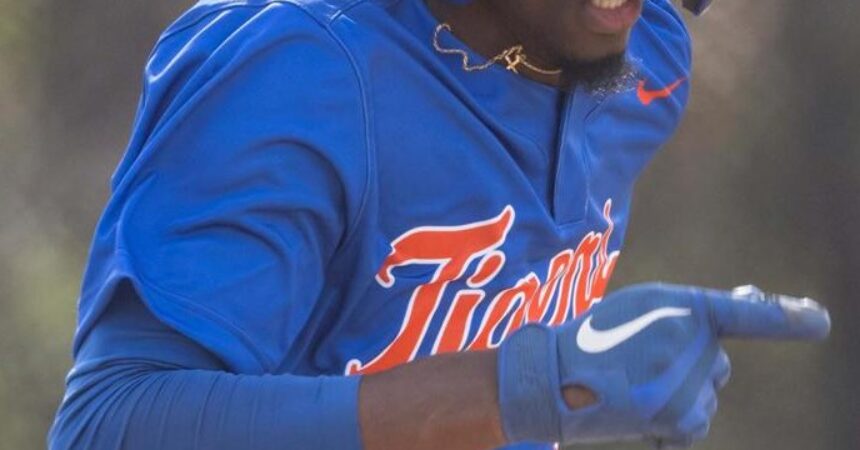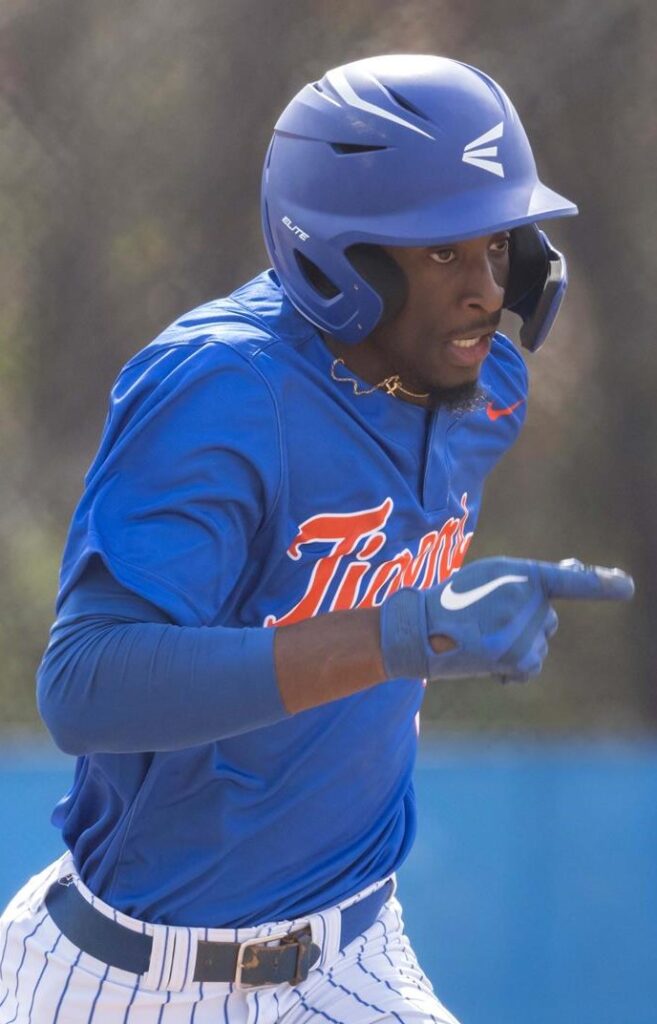
Minority Baseball Prospects HBCU All-Star game brings together talented players and coaches

Savannah State athletics photo
By Menra Mapfumo
NNPA Correspondent
Truist Park hosted the 2022 Minority Baseball Prospects HBCU All-Star Game, headed by the Minority Baseball Prospects organization.
Sixty players from 57 different HBCUs were invited to compete in the All-Star event earlier this month, but to also have fun.
Former MLB Players, college and university coaches, instructors, and fans were in attendance to support the players. Before the game everyone was open to answering some questions regarding the MBP organization and minorities in baseball.
Baseball coach Roberto Alonso Jr. was in attendance to support one of his players, Jose Santiago, a pitcher from Savannah State. Alonso also coached five years at Florida Memorial.”
HBCU All Star Players Joseph Smith (Savannah State) and Casey Coates (Morehouse College) spoke on what it means to be a minority baseball prospect and the opportunities the organization has created for them both.
“I love this opportunity,” Smith said. “A lot of African American people don’t really get the exposure and experience to do stuff like this so it’s a once-in-a-lifetime dream.”
Participating in the game is an opportunity for Black players to show their talent, said Coates.
“It’s a dream at first, but also proves that we, just like other people who aren’t minorities, can do what they do as well. We’re just as talented as they are.”
HBCU All Star Players Malik Bell of Albany State University and teammate Lavoisier Fisher expressed how it felt to represent their HBCU and minorities in the game of baseball.
“It’s awesome because at Albany State it feels like we put our school on the map,” Bell said. “Albany State is in a small town in South Georgia. Not a lot of people there, not a lot to do. For somebody else outside of Albany State to notice our efforts and hard work we put in during the season… I like that.”
For Fisher it didn’t matter that he was from small university.
“We get to come out, perform, show exactly what our coach has been teaching us and it’s going to be lit,” he said. “It’s going to be a fun experience out there.”
Rashad Webster, and assistant baseball coach at Stillman College, said Black players tend to push harder to make it in the big leagues.
“I think there is more fire inside of these gentlemen to make it to the next level because everybody wants to be the next pioneer when it comes to the game of baseball,” Webster said. “Especially being an African American in this game, it takes a pioneer to be able to make a change within the game and open those flood gates so our African American youth can flow into the game of baseball.
“A lot of trials and tribulations come with being a minority baseball player. Whether that be on the field or off the field there’s a lot of things that you have to handle mentally before you get out on this baseball field. A ton of struggle comes with being a minority baseball player…”
Many of the coaches shared their views on the future of minorities in baseball and how their universities could help. Doing that would take funding and sharing of information, said Alonso.
“I went to an HBCU and I have always said it is not where you’re at, it’s how you play,” said Marvin Freeman, coach at Jackson State University. “Baseball is going to be baseball… If your athletic ability matches up with your skill-set and you’re able to excel at whatever venue you’re in, scouts are out there to notice you.
“HBCUs are not as funded as some of the other larger schools, but we still have some of the best talent in the country and hopefully these guys will get an opportunity to show that they compete on whatever level they are on.”
Admittedly, Webster said it’s not easy for minority players to break into the league.
“The numbers have declined in Major League Baseball as far as Black players are concerned, but I think the initiative that Major League Baseball started about five or six years ago, you’re starting to see a dent in that and you’re starting to see an influx of young Black talent coming back into the Major Leagues,” Webster said. “I think that the Major League Baseball Dream Series, the Breakthrough Series, the Hank Aaron Invitationals, we get a chance to put our hands on our kids at a young age and it’s obviously begging to show as they get older…
“I think HBCUs can play a huge role… just simply with activities and events like (the HBCU All-star game) being done and the job a lot of African American coaches at these colleges and institutions has been superb when it comes to raising these young men properly on and off the field. I think in the next ten years you’ll probably see a huge influx of African American baseball players flowing through the minors and making their way into the MLB.”







